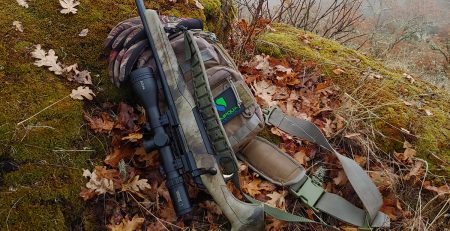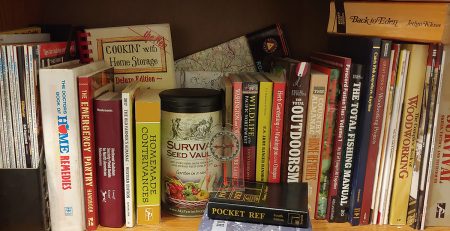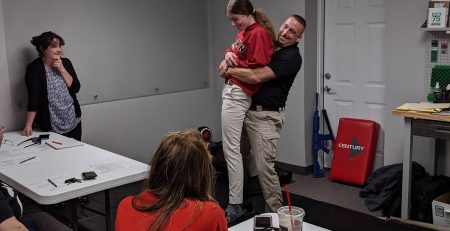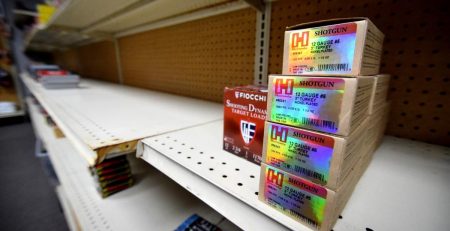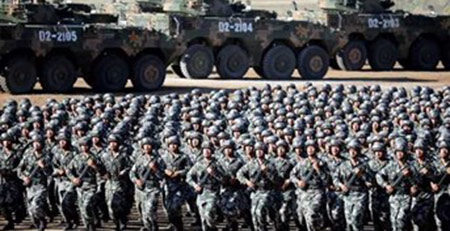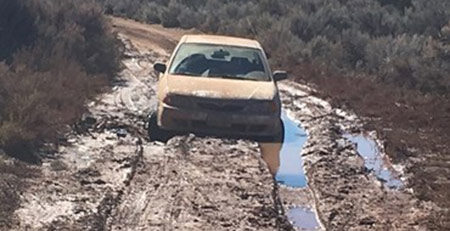Are you ready for when your vehicle fails you?
As the weather changes for the season and winter settles in, it might be time to look at your vehicle preparedness supplies, or lack of. Most people have some form of emergency supplies stored in their vehicle. Most common items you might find consist of spare tire, car jack, jumper cables, and maybe a couple road flares. Take an inventory of what’s in your vehicle and think about where and when you might travel in the upcoming months. If the only driving you do is the 5-mile commute to and from work each day and don’t intend on any other excursions, then those common items might be all you ever need. If you are anything like me, and often hear the mountains calling, you might need some additional supplies.
First, lets go back to the basics. Make sure that your spare tire is actually useable. I have heard tons of stories of folks who go to use their spare, only to discover that it is flat, the wrong size or, missing completely. You might also want to add a bottle of Fix-A-Flat or something similar. Ensure that your jack is adequate for your vehicle. A little bottle jack out of a Honda Civic isn’t going to be much help changing the tire on your F350 with 6” lift and 38’s. Next, check your jumper cables for brakes in the wire, frayed ends, bad connections, etc. You might consider a jump starter. They work like cables, only without the need of another vehicle. Super convenient after listening to your stereo for 5 hours without starting the engine like a genius. Road flares don’t really need much maintenance. If you don’t have any, consider grabbing some. They are very inexpensive and great if you ever need to signal for help, mark an accident or need to start a fire. 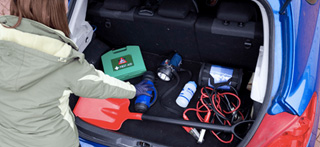
Some things you should also consider carrying no matter what your plans;
A first aid kit is always a good idea. Make sure it is adequate for your needs. If you travel with a family of 6, a couple band-aids and a half dozen Advil (if that is really what they are) probably won’t be much help. Once you’ve selected a decent kit, check it periodically and ensure that you replace what you use.
Tools are always helpful. Try to include the tools you know are needed to work on your vehicle and then add extras. You might also include shovel, axe, electrical & duct tape, zip ties, fuses, electrical wire, spare parts (if you already have an idea of potential problems) bailing wire, and a multi tool. Some extra oil, brake fluid, WD-40, fuel and water are never a bad idea either. In the winter months I’ll usually throw my chainsaw in the truck before I head for the mountains. You never know when a tree will come down and leave you blocked in.
 I always keep a heavy jacket, gloves, beanie and blanket just in case it gets cold by the bonfire. But they also work great when your copilot gets cold or your stuck waiting for assistance on the roadside. A couple different ways to get a fire going are recommended as well. Lighter & matches for the average Joe, but if you want to take a little time to build your primitive survival skills, you can always add more. My current favorite fire starter is the UCO Behemoth Stormproof Sweetfire Match. They work unbelievably well.
I always keep a heavy jacket, gloves, beanie and blanket just in case it gets cold by the bonfire. But they also work great when your copilot gets cold or your stuck waiting for assistance on the roadside. A couple different ways to get a fire going are recommended as well. Lighter & matches for the average Joe, but if you want to take a little time to build your primitive survival skills, you can always add more. My current favorite fire starter is the UCO Behemoth Stormproof Sweetfire Match. They work unbelievably well.
If your vehicle is currently equipped with even a quarter of the items listed above, congratulations, your already more prepared than 75% of people on the road today. If you’d like to take it a step farther, here are a few more suggestions. Communications other than cell phone (CB radio, ham radio, etc.), Map/GPS unit, backpacking stove (JetBoil, Solo, or another brand with good reviews), Tarp or tent, Firearm & ammo, Good fixed blade knife, Lantern & fuel, Flashlight (That should really have been listed in the must haves above), Food (dehydrated meals, MRE’s, energy bars, etc.), trail marking tape, cards or a book/magazines to pass the time, 12-vot tire inflator, rope, chain, come-a-long to name a few.
It’s easy to procrastinate or neglect your vehicle emergency supplies because chances are, you won’t need them. But, it’s just as easy to take a few minutes and check them out. You don’t have to go out and spend a fortune outfitting your survival rig. Just add a couple things every now and then. Hopefully you’ll never need them. But if you do, you’ll be grateful you did. And if you get through all that and still find yourself stranded… I find that whiskey helps.



